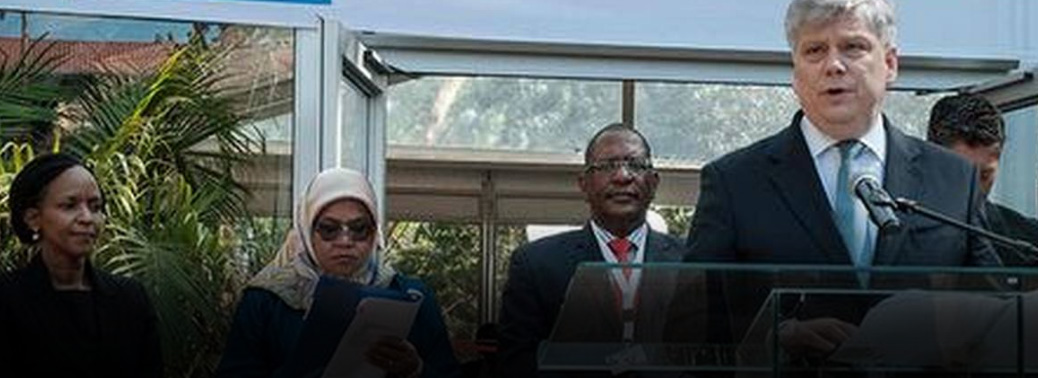UN meet dilutes Indian plan to phase out single-use plastics
17, Mar 2019

An ambitious resolution piloted by India to phase out single-use plastics by 2025, was watered down at the United Nations Environment Assembly (UNEA) at Nairobi.
Deadline pushed back:
However, the final declaration on March 15 removed the firm timelines and edited out the decisively”and only committed to a reduction by 2030.
The UNEA, however, lauded India for playing a key role in advocating a time-bound ban on single use plastic.
Nitrogen pollution:
Along with plastic, India also piloted a resolution on curbing nitrogen pollution.
The global nitrogen-use efficiency is low, resulting in pollution by reactive nitrogen which threatens human health, ecosystem services, contributes to climate change and stratospheric ozone depletion.
Only a small proportion of the plastics produced globally are recycled, with most of it damaging the environment and aquatic bio-diversity.
Both these are global challenges and the resolutions piloted by India at the UNEA are vital first steps towards addressing these issues and attracting focus of the global community.
A Central Pollution Control Board estimate in 2015 says that Indian cities generate 15,000 tonnes of plastic waste daily and about 70% of the plastic produced in the country ends up as waste.
Single Use Plastic:
Single-use plastics, or disposable plastics, are used only once before they are thrown away or recycled.
These items are things like plastic bags, straws, coffee stirrers, soda and water bottles and most food packaging.
Roughly 300 million tons of plastic are produced each year and half of it is disposable! World-wide only 10-13% of plastic items are recycled.
The nature of petroleum based disposable plastic makes it difficult to recycle and they have to add new virgin materials and chemicals to it to do so.
Petroleum based plastic is not biodegradable and usually goes into a landfill where it is buried or it gets into the water and finds it’s way into the ocean.
Although plastic will not biodegrade (decompose into natural substance like soil,) it will degrade (break down) into tiny particles after many years.
In the process of breaking down, it releases toxic chemicals (additives that were used to shape and harden the plastic) which make their way into our food and water supply.
Impact on Human:
These toxic chemicals are now being found in our bloodstream and the latest research has found them to disrupt the Endocrine system which can cause cancer, infertility, birth defects, impaired immunity and many other ailments.
Central Pollution Control Board
- The Central Pollution Control Board (CPCB) of India is a statutory organisation under the Ministry of Environment, Forest and Climate Change (MoEF&CC).
- It was established in 1974 under the Water (Prevention and Control of pollution) Act, 1974.
- CPCB is also entrusted with the powers and functions under the Air (Prevention and Control of Pollution) Act, 1981.
- It serves as a field formation and also provides technical services to the Ministry of Environment and Forests under the provisions of the Environment (Protection) Act, 1986.
- It Co-ordinates the activities of the State Pollution Control Boards by providing technical assistance and guidance and also resolves disputes among them.






